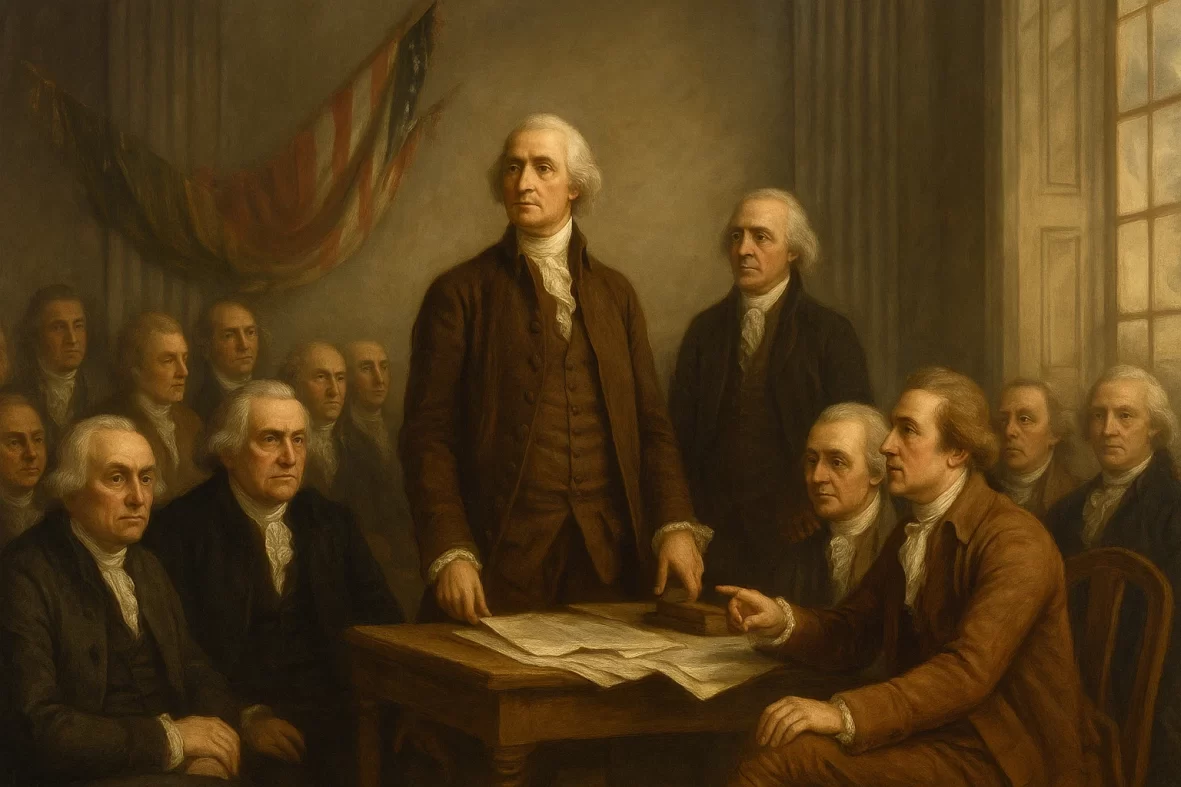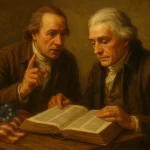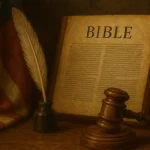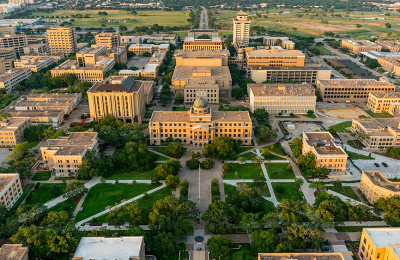Part 3 of the series: Faith and the Founding: A Theological Engagement with America’s Origins
Philadelphia, late June 1787 – The air in the State House hung thick with summer heat and heavier disagreements. For weeks, delegates to the Constitutional Convention had been locked in contentious debate. On June 28, as the convention verged on deadlock, 81-year-old Benjamin Franklin rose to address George Washington, the presiding officer. “I have lived, Sir, a long time,” Franklin began, “and the longer I live, the more convincing proofs I see of this truth – that God governs in the affairs of men. And if a sparrow cannot fall to the ground without His notice, is it probable that an empire can rise without His aid?” Drawing on Scripture that “except the Lord build the house, they labor in vain that build it” , Franklin implored his fellow delegates to begin each day with prayer for divine guidance. The motion for daily prayers, seconded by Roger Sherman, did not ultimately result in a permanent chaplaincy at the Convention . Yet Franklin’s stirring admonition – invoking God’s providence and the Bible – left an imprint. It was a moment of candor about the framers’ dependence on divine aid in their work, even as the document they were crafting would notably omit any explicit mention of God.
The Constitution’s Puzzling “Silence” on God
When the Convention’s labors concluded, the United States Constitution they produced contained no reference to God, the Bible, or Christianity. This “silence” has struck many observers over the years as puzzling or even deliberate. Early on, some Americans voiced concern about the absence of God in the Constitution. A prominent Presbyterian minister, for example, lamented in 1789: “That no notice whatever should be taken of that God who planteth a nation… is an omission which no pretext whatever can palliate… from the Constitution of the United States, it is impossible to ascertain what God we worship, or whether we own a God at all” . According to one famous (perhaps apocryphal) story, when Rev. John Rodgers later pressed Alexander Hamilton about why the framers neglected to acknowledge God, Hamilton quipped in reply, “My dear sir… we forgot!” . Modern secular commentators have similarly highlighted the godless character of the Constitution. Historians Isaac Kramnick and R. Laurence Moore (1996), for instance, dubbed it “The Godless Constitution”, arguing the framers intentionally crafted a secular charter separating religion from the national government. Indeed, aside from the perfunctory date on the last page (“Seventeenth Day of September in the Year of our Lord 1787”), the Constitution’s seven original articles make no direct reference to a deity or scripture.
Was this silence a mere oversight, as Hamilton’s wry remark implies, or a conscious decision? Historical evidence suggests it was quite deliberate. The framers – many of whom were personally religious – chose to keep the federal Constitution religiously neutral for both practical and philosophical reasons. For one, they saw the Constitution as a legal framework rather than a theological or moral proclamation. Unlike the Declaration of Independence of 1776, which invoked the “Laws of Nature and Nature’s God” and a Creator endowing unalienable rights, the 1787 Constitution was a technical blueprint for a new government. It laid out powers, procedures, and structures, not a statement of faith or philosophy. As such, the delegates likely felt it unnecessary to include explicit religious affirmations in what was essentially a civic operating manual . Doing so might have introduced sectarian controversy at a moment when unity was paramount.
Practical politics also played a role. The United States in 1787 was religiously diverse, at least among various Protestant denominations. Several state constitutions did invoke God or required officeholders to affirm Protestant (or at least Christian) faith. But at the federal level, the framers sought to avoid entangling the new government with any particular religious requirement or language that might alienate some states or sects. An illustrative outcome of this intent is the Constitution’s only explicit mention of religion: Article VI’s prohibition on any “religious Test” for public office. No Religious Test Clause, as it is known, boldly broke with Old World tradition. In Britain and many states at that time, officeholding was conditioned on certain religious oaths (such as affirming the Anglican Church or a Trinitarian faith). By banning religious tests, the framers opened public office to people of any faith or no faith at all – a remarkable stance in the 18th century . It was Charles Pinckney of South Carolina who proposed this clause, and the Convention adopted it with little dissent . But during ratification, the absence of a religious qualification sparked heated debate.
In North Carolina’s 1788 ratifying convention, for example, delegate Henry Abbot fretted that under the Constitution “pagans, deists, and Mahometans [Muslims] might obtain offices among us” since no religious test could bar them . Likewise, William Lancaster warned that in “four or five hundred years” the descendants of the new nation might even choose a Catholic or Muslim president – a prospect he found alarming. Such fears reflected the prevalent assumption that public officials should at least be Protestant Christians. Federalist leaders, however, vigorously defended the no-test principle. Future Supreme Court Justice James Iredell asked pointedly, if Americans prized religious freedom, “how is it possible to exclude any set of men [from office] without taking away that principle of religious freedom which we ourselves so warmly contend for?” . The framers believed true faith could not be coerced by government creed, and that civic equality required religious inclusion. Their new federal government would have no religious litmus test – a decision that effectively rendered the Constitution religiously neutral on its face.
This deliberate neutrality explains, in part, why the Constitution does not shout the name of God from its parchment. The framers were creating a legal structure, not a national church. They assumed that religion would flourish best if left voluntary, guided by individual conviction and the “cultural ethos” of the people rather than by government mandate. As political scientist Mark David Hall (2011) notes, the Founders did not establish a Christian theocracy, but they didcreate a regime that was hospitable to religion and religious people . In other words, the Constitution’s silence about God was not a statement of unbelief – it was an invitation to faith’s free exercise in a pluralistic republic. Far from opposing religion, the framers largely presumed a moral and religious populace would sustain the republic, even if the Constitution itself made no theological declarations.
Biblical Ideas Beneath the Surface
Despite the Constitution’s textual silence about the Bible, biblical principles and ideas heavily influenced the founding generation and subtly shaped the Constitution’s concepts. The late political theorist Donald S. Lutz famously quantified the depth of this influence. In a comprehensive study of some 15,000 political documents from the colonial and founding eras (1760–1805), Lutz (1984) found that the Bible was the single most frequently cited source in American political discourse – accounting for approximately one-third of all citations in that literature . This astounding finding places Scripture above Enlightenment luminaries like Montesquieu, Blackstone, and Locke in terms of citation frequency during the period. Lutz’s later book, The Origins of American Constitutionalism (1988), further emphasized the Bible’s prominent role, noting that ministers and clergymen were often key political voices and that their abundant use of biblical references “attests to the continuing influence of religion during the founding era” (Lutz, 1988, p. 140) . In short, the founders’ political vocabulary was steeped in Scripture. Even where the Constitution itself stays silent, the intellectual world of its drafters was one where biblical allusions and lessons were well known.
Yet, it would be a mistake to assume the founders intended to pattern the Constitution directly on biblical law. Lutz observed that when debate focused specifically on the Constitution’s design (for example, in the 1787–88 Federalist and Anti-Federalist writings), biblical citations sharply decreased . The Federalist writers, arguing pragmatically for the Constitution’s provisions, rarely invoked Scripture at all, instead appealing to political philosophy and historical examples. (As Lutz quipped, the Federalists showed an “inclination to Enlightenment rationalism… in their failure to consider the Bible relevant” to the Constitution’s institutional design .) Anti-Federalists, who opposed the Constitution, did sprinkle in about 9% biblical citations in their essays – often warning that the new government needed more explicit grounding in moral principles . But by and large, the public debate on the Constitution was “fought out mainly in the context of Montesquieu, Blackstone, the English Whigs, and major writers of the Enlightenment” rather than Bible verses . This suggests that while general political culture was biblically literate, the framers consciously drew on a mix of intellectual sources when drafting the Constitution – Scripture being just one important strand among classical history, Enlightenment thought, common law traditions, and colonial experience.
Crucially, many of those Enlightenment and common law sources themselves were compatible with a biblical worldview. The framers did not compartmentalize “secular” and “sacred” knowledge the way we might today. They gravitated to theorists who shared certain theistic assumptions. Baron Montesquieu, for example, whose ideas on separation of powers were profoundly influential, wrote with the premise of a divinely ordained moral order and the fallibility of man . British jurist William Blackstone, another favorite source, grounded English common law in Christian natural law, famously asserting that laws contrary to God’s law were void. John Locke’s philosophy of natural rights and government by consent – evident in the Declaration’s soaring lines – was also rooted in a Protestant Christian understanding of natural law and human equality (Locke cited scripture frequently in his Second Treatise). As one educational foundation piece puts it, “all of these writers recognized a Creator of the universe, with a moral law for fallible mankind, and they applied this perspective to shape their political theories” . In other words, the Enlightenment as embraced by the American founders was largely an Enlightenment of Newton and Locke (who saw reason and faith as allies), not the radical anti-religious Enlightenment of Voltaire or Diderot. Thus, the secular sources that informed the Constitution often aligned with biblical principles of morality, human nature, and liberty . The founders saw no contradiction in citing Montesquieu on institutional design while believing, as James Madison did, that there is a “Governor of the universe” who implanted moral laws in His creation.
Several core constitutional concepts bear the imprint of biblical understandings of human nature and justice:
- Separation of Powers and Checks and Balances: The Constitution’s division of government into three branches (legislative, executive, judicial) with checks and balances reflects a keen insight into human nature. The framers shared the biblical view that human beings are fallible and prone to misuse power – a concept akin to the doctrine of original sin (Jeremiah 17:9 speaks of the heart’s deceitfulness). Federalist No. 51, authored by Madison, famously observes that government is necessary because “men are not angels,” and therefore those who govern must be obliged to control themselves and each other. This resonates with the Christian idea that because of sin, power must be restrained and balanced. Interestingly, some clergy of the era pointed to Isaiah 33:22 (“For the Lord is our judge, the Lord is our lawgiver, the Lord is our king”) as a model for separating judicial, legislative, and executive functions – arguing that only God could rightly hold all powers, so in human government they must be divided. Whether or not Isaiah 33:22 directly inspired the framers, Montesquieu’s tripartite scheme was compelling because it accorded with an understanding of man’s fallen nature . By limiting each branch’s authority and setting “ambition to counteract ambition” (Federalist 51), the Constitution built in a structural reflection of the biblical admonition that no single sinful individual (or group) should be too powerful. In this sense, the Constitution’s architecture is consistent with a biblical anthropology – skeptical of concentrated human power and mindful that “all have sinned” (Romans 3:23).
- Natural Rights and Human Dignity: The founders’ belief in natural rights – rights inherent to each person by virtue of being human – is deeply congruent with the Judeo-Christian concept of imago Dei, that humans are made in the image of God (Genesis 1:27) and thus possess inherent dignity. The Declaration of Independence had declared it “self-evident” that “all men are created equal” and “endowed by their Creator with certain unalienable Rights.” The Constitution, written 11 years later, operationalized that theory by establishing a government to secure those rights and, through the Bill of Rights, explicitly safeguarding many of them. As Ellis Sandoz observes, “The philosophical foundation of the Bill of Rights is set forth in the Declaration of Independence’s… announcement of ‘certain unalienable rights’ grounded in the ‘laws of nature and nature’s God.’” (Sandoz, 2006, p. 68) . In other words, the Constitution’s protections of life, liberty, property, due process, and free expression did not arise in a moral vacuum; they rested on a prior understanding (articulated in the Declaration and widely held by the founding generation) that objective moral law and God-given rights undergird legitimate civil law. Lutz (1988) confirms that without the social compact of the Declaration serving as a moral framework, “there would have been no basis for a new national constitution” (Lutz, 1988, p. 112) . Thus, biblical ideals of justice, fairness, and the value of each person indirectly flow into the Constitution’s text via the founders’ natural rights philosophy.
- Limited Government and Federalism: The Constitution is a document of enumerated powers – the federal government can only do what the Constitution authorizes. This concept of limited government reflects a conviction that no earthly authority is all-powerful; government itself must be under law. Such a view aligns with biblical tradition dating to the Old Testament, where Israel’s kings were subject to God’s law and prophets challenged abuses of royal power. Many founders, especially those of devout background, shared an inherited distrust of centralized tyranny – a distrust reinforced by their reading of Scripture and history. They designed a federal system that distributes power vertically (between the national government and the states) and horizontally (across branches) to prevent the domination of government over individual conscience and local community. Scholars have noted that the very notion of a constitutional covenant limiting government arose in part from the Puritan experience of church covenants and early colonial compacts . Indeed, New England Puritans in the 1600s created some of the first written constitutions (like Connecticut’s Fundamental Orders of 1639) explicitly as covenants in the sight of God, forming civil governments while acknowledging divine authority . That covenantal legacy influenced American constitutionalism broadly (Lutz, 1980) and can be seen in the federal Constitution’s preamble, which, secular in tone though it is (“We the People…”), echoes the structure of a covenant by expressing the people’s collective will to “ordain and establish” a government. The framers’ federalism – which preserves local self-government under a national union – also has parallels to the biblical idea of divided authority (for example, the division of governance in Exodus 18, where Moses shares power with local elders, or the covenantal tribes of Israel retaining local autonomy under a national covenant). Lutz (1988) affirmed that federalism in America was “covenant-inspired”, aiming to preserve local freedom while uniting for common purposes . In sum, the Constitution’s limited and layered government fits comfortably with a biblical worldview that honors both community and liberty – man under God, and government under law.
- Moral Ecology and Republican Virtue: Finally, the founders widely believed that a republic cannot survive without virtue among the people – and that religion, especially biblical religion, is a chief source of moral virtue. This was a cultural ethos more than a constitutional provision, but it was explicitly acknowledged by many framers. George Washington, in his Farewell Address, warned that “reason and experience both forbid us to expect that national morality can prevail in exclusion of religious principle.” John Adams likewise said, “Our Constitution was made only for a moral and religious People. It is wholly inadequate to the government of any other.” Such statements reflected a consensus that while the Constitution did not establish a national religion, it presupposed a morally self-regulating citizenry, the kind of citizenry largely formed by religious (often Christian) convictions and communities. Thus, the Bible’s influence on America’s founding was perhaps most powerful at this informal level: in the sermons that thundered from New England pulpits about liberty and justice, in the cherished stories of Exodus and the promised land that inspired patriots, and in the personal values that guided leaders like Washington, who frequently alluded to Providence and scripture. Historian Daniel L. Dreisbach notes that the Bible was pervasive in political rhetoric not only for its theology but for its literary and rhetorical power – it was “the most authoritative, accessible, and familiar book in eighteenth-century America” . Even relatively skeptical founders (like Franklin or Jefferson) could quote biblical aphorisms or parables with ease. “Believers and skeptics alike made use of the Bible,” Dreisbach observes, as an “intellectual sourcebook” and moral reference point . The result was that biblical thought suffused the founding era’s discourse, creating a milieu in which, for example, the concept of liberty was often cast in biblical terms (“Proclaim liberty throughout all the land” was emblazoned on the Liberty Bell, quoting Leviticus 25:10), and the cause of independence was likened to the Israelites’ deliverance from Pharaoh. Such scriptural analogies reinforced the political ideas that found concrete form in the Constitution and subsequent Bill of Rights.
In these ways, we see that the Constitution’s legal secularism and the culture’s biblical ethos were not contradictory but complementary. The framers did not cite chapter and verse in the Constitution, but the document arose in a civilization profoundly shaped by the Bible’s vision of ordered liberty. The Constitution can thus be seen as a product of Christian-influenced political ideals, even as it established a government neutral toward specific Christian doctrines.
Secular Charter or Scriptural Foundation? – Debating the Framers’ Intent
The interplay of biblical influence and Enlightenment secularism in the American founding has fueled scholarly debate for decades. Some interpreters emphasize the Constitution’s secular character, while others underscore the biblical and religious dimensions of the founding. This debate often comes down to how one weighs the Constitution’s text against its context.
On one side, secularist scholars argue that the Constitution was a conscious pivot away from the religiously infused politics of earlier eras. Kramnick and Moore (1996), for example, contend that the framers designed a “godless” Constitution to erect a “wall of separation” between church and state. They point to choices like the omission of God’s name, the ban on religious tests, and the disestablishment of religion at the federal level as evidence that the founders were erecting a purely secular framework. Indeed, the Constitution’s neutral language and the Enlightenment rationalism evident in The Federalist Papers support this view that the supreme law was founded on reason, not revelation. Secularists often note that key architects like James Madison and Thomas Jefferson (though Jefferson was not at the Convention, his influence loomed) were influenced by thinkers like Hume and Voltaire and championed religious liberty in terms of natural rights rather than theology. They also observe that early America did not officially invoke Christianity in its national charter, unlike many European nations – an intentional exclusion in their view. As further proof, secularists might cite how the first Congress (which proposed the First Amendment religion clauses) explicitly rejected Madison’s initial wording that spoke of “duties to their Creator,” opting for more neutral phrasing in the final text (Hall, 2019). All of this, they argue, underscores that the Constitution established a secular state, albeit one where religion could be freely practiced in the private sphere.
On the other side, religion-and-the-founding scholars push back against a purely secular narrative. They argue that while the Constitution is institutionally secular, it is culturally and philosophically indebted to biblical ideas. Daniel L. Dreisbach has been a leading voice in this camp. He cautions that modern observers often suffer from “biblical illiteracy” and thus overlook or misinterpret the many ways the founding generation’s worldview was informed by Scripture . Dreisbach (2017) and colleagues like Mark David Hall and Jeffry Morrison have documented extensive examples of founders referencing the Bible in political discourse – from high-level rhetoric to specific applications of biblical lessons to political questions. For instance, Dreisbach notes how often the book of Proverbs was quoted regarding righteous leadership (e.g. “when the righteous are in authority, the people rejoice: but when the wicked beareth rule, the people mourn” – Proverbs 29:2 – was a commonly cited warning about electing virtuous leaders) . The frequency of such references suggests that even irreligious founders operated within a political culture “virtually indistinguishable” from the old biblical Protestant tradition of the colonies . Far from being hostile to religion, the founders generally saw religion as an ally to republican virtue. They differed from their more radical French Revolutionary counterparts in this very respect: the American founding, though Enlightenment-influenced, was not militantly anti-Christian.
Moreover, proponents of this view highlight that the founding-era consensus on religious liberty itself grew out of Christian thought. The principle of no established national church was supported not only by secular reasoning but by evangelical Protestants (like the Baptists) who argued on biblical grounds that faith must be voluntary. The ban on religious tests, while secular in effect, aligned with a Christian understanding that true faith can’t be coerced and that civil government should concern itself with civil things (“Render unto Caesar…”) rather than act as a gatekeeper of heaven. Thus, religious scholars argue the Constitution’s secular form was the best practical means to achieve religious ends: peace, freedom of conscience, and a society where virtue (rooted largely in religion) could flourish without state interference.
Historian Mark David Hall encapsulates the balanced perspective: America’s Founding was not “Christian” in establishing a theocracy, but it was “deeply shaped by Christian moral truths” . He notes that virtually all the Founders – even skeptics like Franklin or Jefferson – were influenced by the ethical teachings of Christianity and the Bible’s view of human nature. Many were devout Christians; others were more heterodox or nominal in faith. Yet collectively, they shared certain Christian-informed convictions about natural law, human equality, and liberty of conscience (Hall, 2019). The result was a Constitution that reflected those values (e.g. limited government, inherent rights, consent of the governed) without enshrining any single theology. As Hall and Dreisbach both emphasize, the proper historical understanding steers between two distortions: it rejects the extreme claim that the founders were mostly deists who purged religion from public life (“Of course not!” to a Christian founding), and also rejects the opposite myth that the founders intended to establish a Bible Commonwealth under Mosaic law (“Absolutely!” to a Christian founding) . The reality is more nuanced – a creative synthesis of biblical and Enlightenment ideas.
This debate carries implications for how we interpret the Constitution today. Secular-oriented scholars might argue that, because the Constitution is godless in text, modern constitutional interpretation should likewise be strictly secular (as in, government should maintain strict separation and not recognize religious influences). Those who see a biblical influence, however, might contend that acknowledging the Judeo-Christian underpinnings of American ideals can enrich our understanding of the Constitution’s meaning and the founders’ intent. For example, knowing that the founders viewed rights as God-given can inform how we view the inviolability of those rights. Recognizing the biblical concept of covenant in our federalism might encourage an interpretation that values local communities and moral responsibilities. In any case, serious scholars across the spectrum agree that one must understand the Founding Fathers’ intellectual world– which undeniably included the Bible – to fully grasp the Constitution’s original context . Ignoring the Bible’s role, as Dreisbach warns, can lead to a distorted view of our own history .
Rather than seeing the Constitution as either a secular or a sacred document, it is perhaps best described (to borrow a phrase from theologian John Witherspoon) as “an instrument of civil government” framed by men whose moral imagination was shaped by the Bible. It sets up a secular state in the sense of no official religion, but not a secular society in the sense of banishing religion from public life. Understanding this duality can help today’s Americans avoid simplistic narratives and instead appreciate the Constitution as a prudent, unifying framework that emerged from robust dialogue between religious convictions and rational policymaking.
Reflections for Christians Engaging Constitutional Government Today
More than two centuries later, what guidance can Christians glean from this history as they engage with American constitutional government? First, we can take encouragement that the Constitution’s seeming “silence” about God does not mean God was absent from its creation. The framers’ earnest prayer and biblical references – like Franklin’s call to prayer amid gridlock – remind us that profound faith often operates behind the scenes, in the hearts and minds of leaders, even when it’s not etched in the legal text. Many framers privately acknowledged what George Washington publicly proclaimed in his inaugural address: that the hand of Providence was guiding the American experiment. As believers, we can recognize God’s sovereignty in raising up a nation conceived in liberty, and we can be grateful for a Constitution that, though not explicitly Christian, has allowed Christianity and other faiths to thrive in freedom. The lack of governmental enforcement of religion has, in practice, protected the Church’s independence and purity – a principle consistent with Christ’s teaching that His Kingdom is “not of this world” (John 18:36).
Secondly, the founding story underscores the importance of Christian influence on culture rather than on mere law. The framers didn’t write Bible verses into the Constitution, yet biblical values permeated the society that gave the Constitution life. This suggests that Christians can have a mighty impact on civil society by living out biblical principlesand fostering virtue, without needing the state to mandate religion. The Constitution provides a framework in which we are free to “let our light shine” (Matt. 5:16) through acts of justice, mercy, and love, shaping the nation’s character from the ground up. It entrusts “We the People” with the task of self-government – a task the founders believed we could only fulfill if we practiced the self-discipline and charity that the Gospel produces. In our own time, if we desire a government that is just and compassionate, we must ourselves be people of justice and compassion, engaging our neighbors and the public square with both intellectual rigor and Christ-like grace.
Furthermore, the constitutional system – with its checks and balances and limited powers – can be seen as an ally of the Christian worldview in that it restrains the human tendency toward tyranny. As Christians who affirm the doctrine of sin, we understand (as Madison did) that no fallible human or institution should be given unchecked authority. The Constitution’s structure, by design, acknowledges human fallenness and seeks to prevent the concentration of too much power in any one sinner’s hands. In practice, this means Christians should respect constitutional limits and work within them to promote good. We should not put our ultimate faith in princes or presidents (Psalm 146:3); rather, we value the rule of law and the diffusion of power as protections against the harm that unbridled human sin can inflict. In a sense, the Constitution’s wisdom echoes the biblical warning that “Put not your trust in rulers… in whom there is no salvation” (Psalm 146) – instead, it channels power through law and institution, subject to checks that align with a Christian realist view of politics.
Finally, the founding generation’s example calls today’s believers to a posture of prayerful involvement and hope. Franklin’s motion for daily prayer at the Convention, though not formally adopted, is emblematic: even the most rationalist of Founders knew that the success of their endeavor depended on divine providence. So too, Christians should approach civic engagement with prayerful dependence on God’s guidance. We pray for our leaders (1 Timothy 2:1–2) and for the welfare of our nation (Jeremiah 29:7), recognizing that our freedoms are a gift from God’s hand. We also engage – as informed citizens, voters, perhaps public servants – bringing salt and light to the arenas of law and policy. The Constitution gives us mechanisms to influence government (free speech, elections, petitions, jury service); using those rights responsibly is a way to love our neighbors by seeking a just society. A biblically minded Christian will neither idolize the Constitution nor disparage it; rather, we thank God for it as a remarkable framework that has safeguarded liberty, while remembering that only a virtuous people can sustain its blessings.
In conclusion, the story of the Bible and the Constitution is one of subtle but profound influence, intentional restraint, and ongoing interpretation. The Constitution may not mention God, but God’s fingerprints are arguably present in its inspired principles of liberty and justice. As thoughtful Christians, we are invited to appreciate this heritage – warmly, critically, and with gratitude. We can rejoice that our nation’s foundational law, though secular in form, was born in an environment rich with biblical wisdom. And we can accept the challenge to carry that wisdom forward. In our own generation, thinking biblically about law, liberty, and civil society means upholding the God-given dignity of every person, championing righteousness and truth in the public square, and tempering power with both humility and moral conviction. The framers’ faith-informed statesmanship provides a model: to be principled yet pragmatic, devout yet open-minded, reliant on Providence yet active in duty. By following that model – and by continually asking how Scripture should shape our interpretation of justice and human governance – we honor both God and the remarkable Constitution He allowed fallible men to forge.
References
Dreisbach, D. L. (2017). Reading the Bible with the Founding Fathers. New York, NY: Oxford University Press.
Hall, M. D. (2019). Did America Have a Christian Founding? Grand Rapids, MI: Thomas Nelson.
Hyneman, C. S., & Lutz, D. S. (Eds.). (1983). American Political Writing During the Founding Era, 1760–1805 (Vols. I–II). Indianapolis, IN: Liberty Fund.
Kramnick, I., & Moore, R. L. (1996). The Godless Constitution: The Case Against Religious Correctness. New York, NY: W.W. Norton.
Lutz, D. S. (1984). The relative influence of European writers on late eighteenth-century American political thought (1760–1805). American Political Science Review, 78(1), 189–197.
Lutz, D. S. (1988). The Origins of American Constitutionalism. Baton Rouge, LA: Louisiana State University Press.
Sandoz, E. (2006). Republicanism, Religion, and the Soul of America. Columbia, MO: University of Missouri Press.








